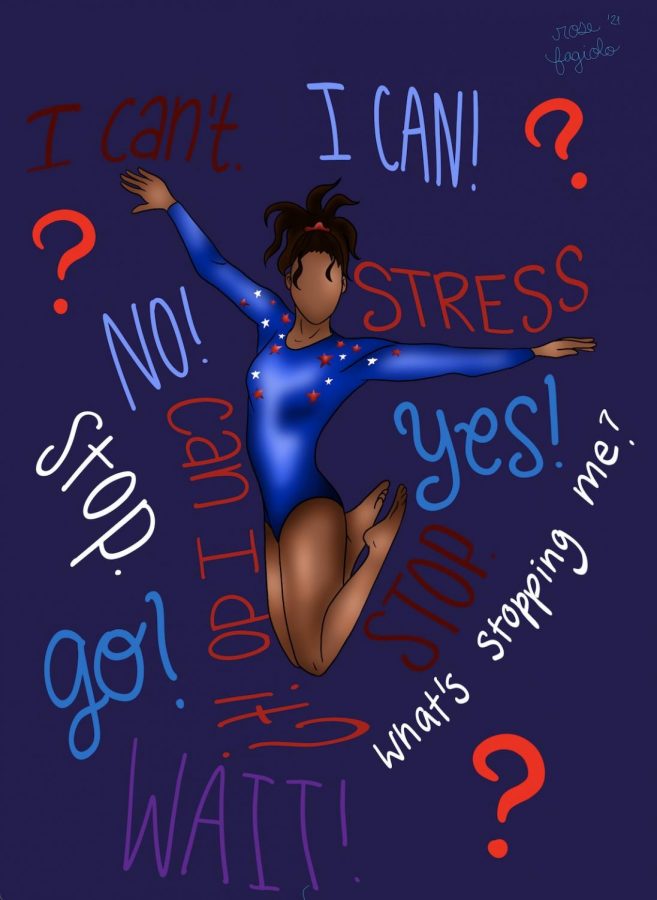Biles’s Stance on Mental Health Inspires
Simone Biles shocked audiences of the 2021 Tokyo Olympics when she decided to withdraw from the United States Women’s National Gymnastics Team. She developed the “twisties,” a mental block that affects an athlete’s spatial awareness that, while dangerous for all athletes, is especially harmful to gymnasts who rely on it to perform intricate routines. If an athlete at Biles’s caliber were to pull back in the middle of a routine, they could be permanently injured and be forced to forfeit their career. As a result, Biles decided that her mental state was not at its best, and that she should miss out on part of the competition.
Though Biles’s decision was heartbreaking for American and international gymnastics fans, most spectators can only imagine the emotional turmoil she endured during the Olympic games. However, both current and former athletes may be able to relate to the stress unique to performing under pressure. In fact, a staggering number of athletes at all levels experience difficulties with mental health. According to Athletes for Hope, 35% of professional athletes will experience a mental health crisis during their career, and for the average high school student experiencing pressures from academics and college applications, athletics are only one of many stressors that they deal with.
Unfortunately, when athletes face decisions about mental health, there is no specific method on how to lessen anxiety, so, we asked junior Baileigh Racky to tell us more about what an athlete can do. We asked what she does as a swimmer to decrease stress before a swim meet, and she explained, “I listen to music, and talk to friends to try and get my mind off the race.” When she was asked what an athlete can do when under stress, she said, “Get energized and get ready, think positive, get your body moving.” When in stressful situations, an athlete should put mental health first and try these amazing tips that our upperclassman has provided! Racky also advised that when you are in a situation where your mental health is impeding your performance in your sport, you should reach out for help. “If there is anything wrong you should talk to someone or to your coaches and friends, but if it gets to a bad point, have a serious discussion with your coach, and go from there,” she says. We can all look up to Simone because she was not afraid to leave one of the most important competitions in her career for her mental health. Sports are not easy and consume a lot of time, which is why mental health should be put first.








